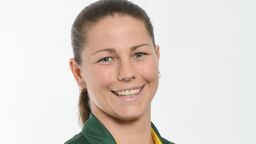Last month, the U.S. Soccer Federation announced the venues for the 2018 CONCACAF women’s championship, the tournament that serves as the qualifiers for the 2019 Women’s World Cup. One of them is in North Carolina and that poses a problem.
With a World Cup berth on the line, the October tournament represents the first USWNT games since the 2016 Olympics where something real is at stake. One of the three venues where the USA will be playing its group-round matches is Sahlen’s Stadium in Cary, North Carolina, home of the USL North Carolina FC and NWSL North Carolina Courage.
To some extent, this stadium makes sense. The area has a strong base of support for women’s soccer — Cary is a stone’s throw from Chapel Hill, home of the legendary University of North Carolina women’s soccer program, and the Courage have enjoyed respectable attendance since moving to Cary in 2017. It’s a small stadium, but in terms of atmosphere, a packed 10,000-seat stadium is preferable to a half-full StubHub or Soldier Field.
The problem, though, revolves around anti-LGBTQ legislation passed in the state. Remember when the NBA and NCAA pulled events from North Carolina after the passage of HB2? The so-called “bathroom bill” rightly raised the ire of the business community, including a number of sports leagues. In response, the state assembly passed what was termed a repeal of HB2, but in practice HB142 is just as harmful to the LGBT community.
The NCAA giving its blessing to HB142 by rescinding its boycott against events in North Carolina is one thing and any sporting body lending its tacit support to this discriminatory law should be condemned. For U.S. Soccer to do so, though, smacks of greater hypocrisy.
The women’s national team fanbase is among the gayest in sports. American soccer in general, and women’s soccer in particular, is a uniquely accepting, welcoming space for queer fans. From a personal perspective, the soccer community here in Portland, Oregon, has played a huge role in helping me learn to be comfortable in my own skin as a queer woman.
U.S. Soccer, for the most part, has kept pace with its fans on these issues. Last summer, both the men’s and women’s teams donned jerseys with special rainbow numbers, part of a pride-month initiative with You Can Play. The women’s national team has counted multiple out gay players among its ranks over the years, including Megan Rapinoe, a likely lock for the October roster. In the wake of the horrific Pulse shooting in 2016, men’s national team captain Michael Bradley donned a rainbow armband for a game against Ecuador, then auctioned it off to raise money for victims.
All those gestures look less powerful if the federation blithely decides that there’s nothing wrong with bringing their business to a state where discrimination against the LGBT community is enshrined in the law.
To be clear, this is a CONCACAF tournament on U.S. soil, so the decision doesn’t rest completely with U.S. Soccer. Nonetheless, the federation has a major say. Neil Buethe, USSF’s director of communications, wrote in an email that “U.S. Soccer works with CONCACAF to determine the locations.”
He explained the factors that go into those decisions include “the availability of the venue, what other events the venue may or will have going on [to preserve field condition], the type of surface (grass/turf), the size of the venue, how many times we’ve played/or not played in the city/region recently, the weather that time of year, the ease of travel in and out of the venue.”
Those are all important considerations (although it’s worth noting that it wasn’t all that long ago that the national team last played in Cary — they took on South Korea there in a friendly in October 2017). The messaging this decision sends, both to fans and lawmakers, should also be a consideration, but it doesn’t seem to have been given much thought here.
The message to lawmakers is that discriminatory legislation won’t deter U.S. Soccer from doing business in the state. The NCAA shouldn’t have changed its position after HB142 replaced HB2, and U.S. Soccer should also make a stand and refuse to hold events there until the law is changed.
In addition, the decision tells a specific segment of fans, many of whom are among the team’s most consistent and vocal supporters, that their rights are less important than the logistical and financial factors that motivate the selection of the venue. Any out-of-state fan who either wouldn’t want to travel to North Carolina because of fears about, say, bathroom availability, or who simply sees spending money there as tacit support for HB 142, is out of luck.
The world’s game belongs to us, too. U.S Soccer can fly rainbow flags in as many places as they want, but all that is meaningless if the federation won’t make a stance against real-world anti-LGBT legislation.
Katelyn Best is a writer and journalist in Portland, Oregon. She covers the Portland Thorns for Stumptown Footy, and her work has appeared in Portland Monthly, Excelle Sports, ESPNW, and elsewhere. She can be reached via her website: kabest.me or on Twitter: https://twitter.com/BestKabes







































